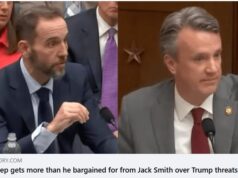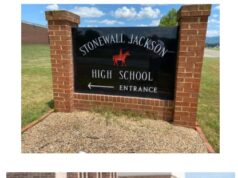by Austin Sachs, director of Protect US, a group whose goal is an economic system that “benefits all members of society and lives in harmony with nature” and whos current focus is “to establish socially responsible investment and banking matrices in the state of Virginia to make sure our money is going towards justice, not extractive industries.”
For years, government finance has not really changed. Collect an ever-changing amount of tax revenues, fully allocate that money out between departments, and save a little left over to pay the bank for interest on capital projects that normal tax revenues do not cover. It is surprising that with all the media attention on basic income or Medicare for All, that something as simple as managing our taxpayer dollars more efficiently does not come up more often. But that is what Protect US is trying to do – to redefine the way municipal and state governments manage their resources – starting here in Virginia.
For years, public banking was the law of the land in how the federal government managed its finances before the Federal Reserve. But after the Second Bank of the United States’ charter was not renewed, public banks fell to a state responsibility. And for a while they did such. But just like the Bank of the United States, they fell away – well, except for one, the Bank of North Dakota. Founded in 1919 the Bank of North Dakota has become a cornerstone of North Dakota’s government and economy, helping maintain the most diverse array of local financial institutions and helping the state weather the financial crisis of 2008. The Bank of North Dakota is so successful that a state that votes Republican has no problem with another state agency.
So what exactly is public banking? In its simplest form, it is the state managing its own money, rather than outsourcing this responsibility to a corporate bank, like Wells Fargo or JP Morgan Chase. The bank then differs little from a corporate bank, except for its requirement not to compete with local financial institutions, but instead to help them by buying their loans, after being well vetted. This system has brought North Dakota over $120 million in revenue in the last fiscal year, and over an estimated $500 per capita annually in increased economic growth, while decreasing public infrastructure project costs.
So why has this form of government finance not caught on fire elsewhere? Mostly because it seems complicated from the outside and its benefits are in the long term rather than the short term. Also, the Bank of North Dakota, when it was formed, was not nearly as successful as it was now. Just like any other financial institutions it must weather the storm of a new institution before it becomes successful. Time has showed that it is successful — and now its example is helping lead other the same direction. Bills currently exist in the Alaska, New Jersey and Michigan legislatures. In addition, on the ballot in California in November will be a question on whether to create a publicly owned bank in L.A. And here in Virginia, we are leading the push to create a Bank of Virginia.
The next step is socially responsible investing of investment funds. For most US states and major cities, a pension plan exists for all state employees – the Virginia Retirement System (VRS) here in Virginia. One of the last surviving relics of the pension era, these funds constitute billions of dollars in the financial market and hold sway that may individual investors can not even fathom. The problem is funds have been constitutionally mandated to be managed strictly for the best financial rates of return, which for decades has been the opposite of societal goals, due to perverse market incentives.
Socially responsible investing changes that. In socially responsible investing, how one’s funds are invested is not a second thought, but considered alongside the social impact of those companies being invested in. Once a fringe topic in the investment world, socially responsible investing is growing fast and redefining the relationship of money and societal problems. One of the shining examples of socially responsible investing here on the East Coast is in North Carolina, where Earth Equity Advisors manages over $75 million in assets. Earth Equity Advisors shows that profits and societal good are not opposites.
And this type of investing can be further applied to pension plans. Currently the VRS holds over $650 million in fossil fuels, big tobacco and weapons dealers, a sum that would significantly shape the financial landscape if invested socially responsibly. Note that NRDC, Blackrock, and FTSE have recently shown that fossil fuel divestment would only increase absolute portfolio risk by slightly over 0.01%. And as social progress moves forward these industries lose profits or must adapt, which effects investment returns.
Following the lead of the Bank of North Dakota, Protect US is working to lay the groundwork for a public banking bill and divestment bill on the floor of the Virginia General Assembly in January of 2019. And so, from Harrisonburg to Newport News and from Roanoke to Chesterfield County, Protect US is helping local organizations and communities lead their own efforts to endorse socially responsible banking and investing in the state of Virginia.
In each city and county across the state our goal is to have our elected officials pass resolutions urging the support of both bills by the Virginia General Assembly and by Governor Northam. With the control the state government has over the pension plan and the reach of the Dillon Rule, our local governments, those who would benefit the most from socially responsible investing and banking, have no ability to change their situation. But they do have the ability to create political will to move our state leaders to social change.
Now, this effort needs the help of everyday Virginians. With such a large-but-necessary change, our elected officials must know that they will not be voted out for failing to fix government finance but rewarded for making the right change before it is too late. So, we are asking every Virginian to sign on to our campaign either with our local resolutions or with our statewide petition:
Divest the Commonwealth: Virginia
Together we can save both Virginia lives and Virginia taxpayers dollars at the same time, by revolutionizing the way municipal governments do finance!



![Video: Former Eastern District of VA Federal Prosecutor Gene Rossi Asks, “Is Donald Trump going to be the lead counsel in that prosecution [of Jim Comey] and do the opening, closing and rebuttal? I pray that he does!”](https://bluevirginia.us/wp-content/uploads/2025/09/rossiedva-238x178.jpg)







